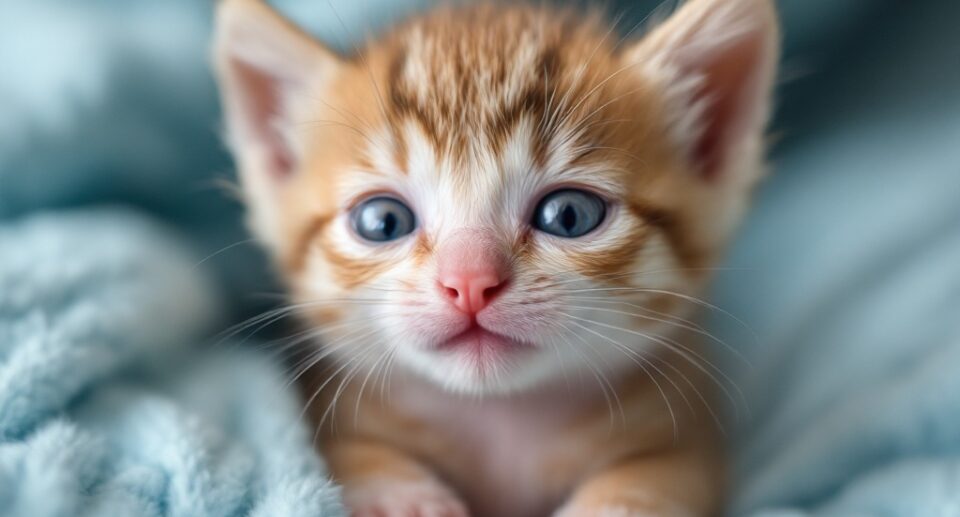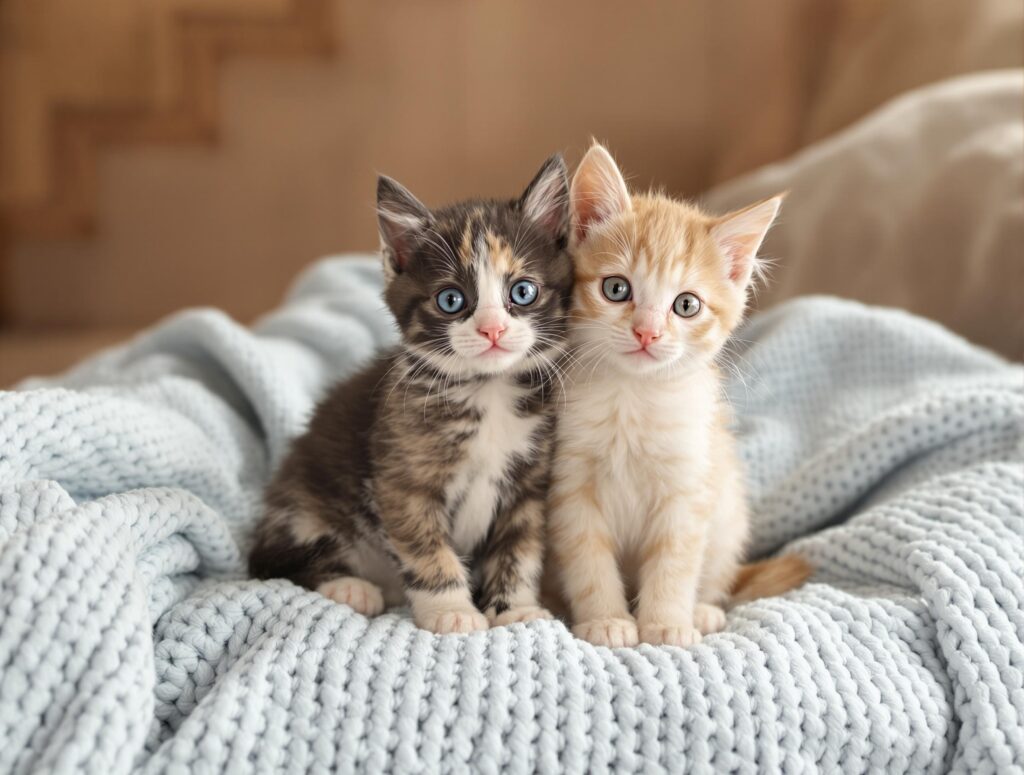Seeing the World: When Newborn Kittens Open Their Eyes

Key Takeaways
- Newborn kittens typically begin to open their eyes between days 7 and 14, marking a significant developmental milestone.
- Creating a warm, clean, and stress-free environment with proper nutrition is crucial for supporting healthy eyes and overall development in kittens.
- Monitoring your kitten’s eye health and consulting a veterinarian if any issues arise ensures proper care and early intervention during their critical growth stages.
When Do Newborn Kittens Open Their Eyes?
Your newborn kitten’s first glimpse of the world is an unforgettable moment. These tiny furballs enter the world with their eyes closed, relying entirely on scent and touch to navigate their first days. Naturally, as a pet parent, you might be wondering—when will they finally open their eyes? Typically, this exciting milestone happens between days 7 and 14 of life. This is just the beginning of a journey filled with discovery, growth, and bonding between you and your kitten. While most kittens develop normally, any concerns about their vision or health should always be discussed with a veterinarian.
Those first few weeks with your kitten are like witnessing a tiny miracle unfold. Born at just 50-150 grams—so incredibly small—they quickly begin to develop their senses and explore their world. When their eyes finally flutter open, revealing those temporary baby-blue hues, it’s a moment to cherish. This is your cue to start observing their progress closely and ensuring a safe, cozy environment where they can thrive. Learn more about kitten supplies to keep your little one comfortable and cared for.
Early Kitten Development and Care
Kittens grow and change so quickly in these first few weeks! Their initial helplessness requires a nurturing and protective environment to thrive. As their eyes begin to open, revealing their temporary blue color, keeping a close eye on their progress is essential. Your role in providing a safe, clean, and nurturing environment will make all the difference.
Providing a calm and quiet space, free from loud noises and distractions, helps your kitten feel safe as they adjust to their changing world. If you notice anything unusual about your kitten’s development, consulting a veterinarian is the best way to ensure they receive proper care.
Kitten Development Stages by Age
There’s nothing like the joy of watching your kitten grow bit by bit—each move shapes them into the curious cats you’ll adore forever. Here’s a quick guide to their early milestones:
Birth to 7 Days
Your tiny kitten’s all about warmth and nourishment, snuggling close to mom. With eyes still shut, they’re busy growing stronger—set up their nest with soft blankets in a peaceful, draft-free spot.
Days 7-14
Brace yourself—your kitten’s eyes start opening around now, though things look a bit hazy at first. Those baby blues might change later, so keep lighting low to protect their delicate eyes. Learn about cat health essentials to support their early growth.
Weeks 2-3
Your kitten starts taking shaky first steps! Their eyesight clears, and they begin reacting to sound. Gentle interactions and soft words help strengthen your bond.
Weeks 3-4
Tiny teeth begin to appear! Let them safely explore their surroundings under supervision.
Weeks 4-8
Playtime begins! Your kitten’s movements become steadier as they learn to socialize. Provide cat toys and enrichment to encourage healthy play.

How to Care for Newborn Kittens
Temperature and Comfort
Keep their environment warm, ideally between 85–90°F, using a low-heat pad under soft towels. Always leave space so they can move away if it’s too warm.
Feeding Guidelines for Kittens
If the mother cat isn’t nursing, use kitten milk replacement formula. Feed 2–4 ml every few hours using a kitten-safe bottle. Look for signs of satisfaction such as kneading paws and calmness after feeding.
Daily Care Routine
- Wipe them down gently with a warm, damp cloth after feeding
- Pat dry with a soft towel
- Change bedding daily
- Weigh kittens daily to monitor growth
- Ensure regular elimination after feeding
Monitoring Kitten Health
Stay alert for warning signs such as poor appetite, lethargy, crusty eyes, or breathing issues. If you notice any of these symptoms, contact your veterinarian promptly.
How to Prevent Eye Issues in Kittens
To protect your kitten’s developing eyes:
- Keep their nest clean and warm
- Gently wipe away discharge with a soft, warm cloth
- Avoid bright light exposure
- Always wash your hands before handling
If you notice swelling, crust, or redness, your veterinarian can recommend treatment to prevent infection or damage.
Frequently Asked Questions About Kitten Eye Development
How can I tell if my kitten’s eyes are developing normally?
Healthy kitten eyes look clear and bright. If you notice cloudiness or discharge, contact your vet.
Why are my kitten’s eyes still closed?
Some kittens open their eyes later than others. If they’re still closed after 14 days, consult your veterinarian.
What should I watch for once my kitten’s eyes open?
Watch for discharge, swelling, or sensitivity to light—all signs to contact your vet.
Is my kitten’s eye color changing normal?
Yes! Kittens are born with blue eyes that typically change color around 6–8 weeks.
How can I protect my kitten’s developing vision?
Maintain a calm, clean environment and monitor for any eye irritation or infection.
Next Steps for New Kitten Care
Tracking your kitten’s milestones and maintaining a clean, nurturing environment helps ensure healthy development. Keep notes on their progress and share updates with your vet to stay proactive about their care.
Ready to support your kitten’s growth and well-being? Explore cat supplies and essentials at 1800PetMeds to give your furry friend the best start in life.





